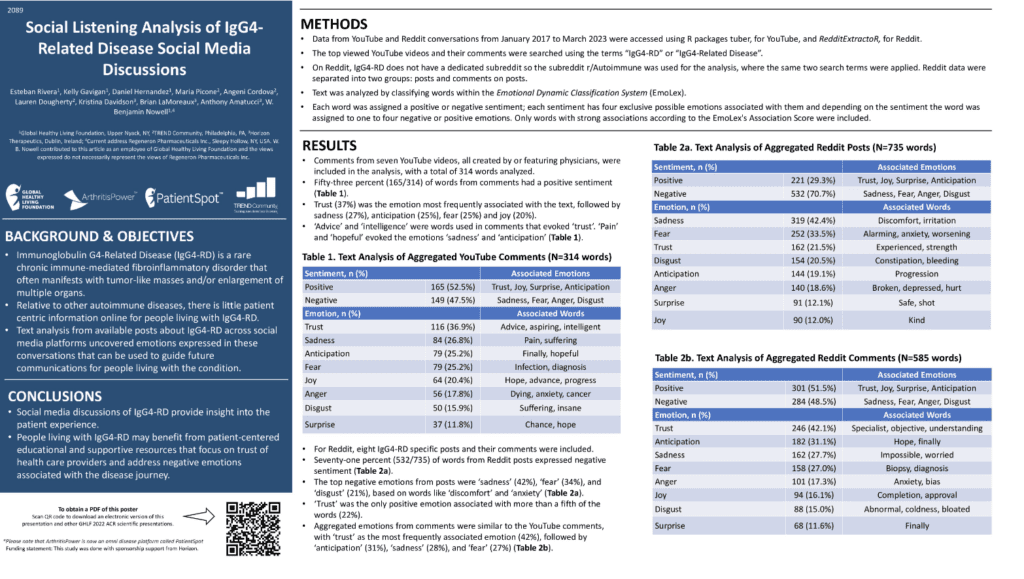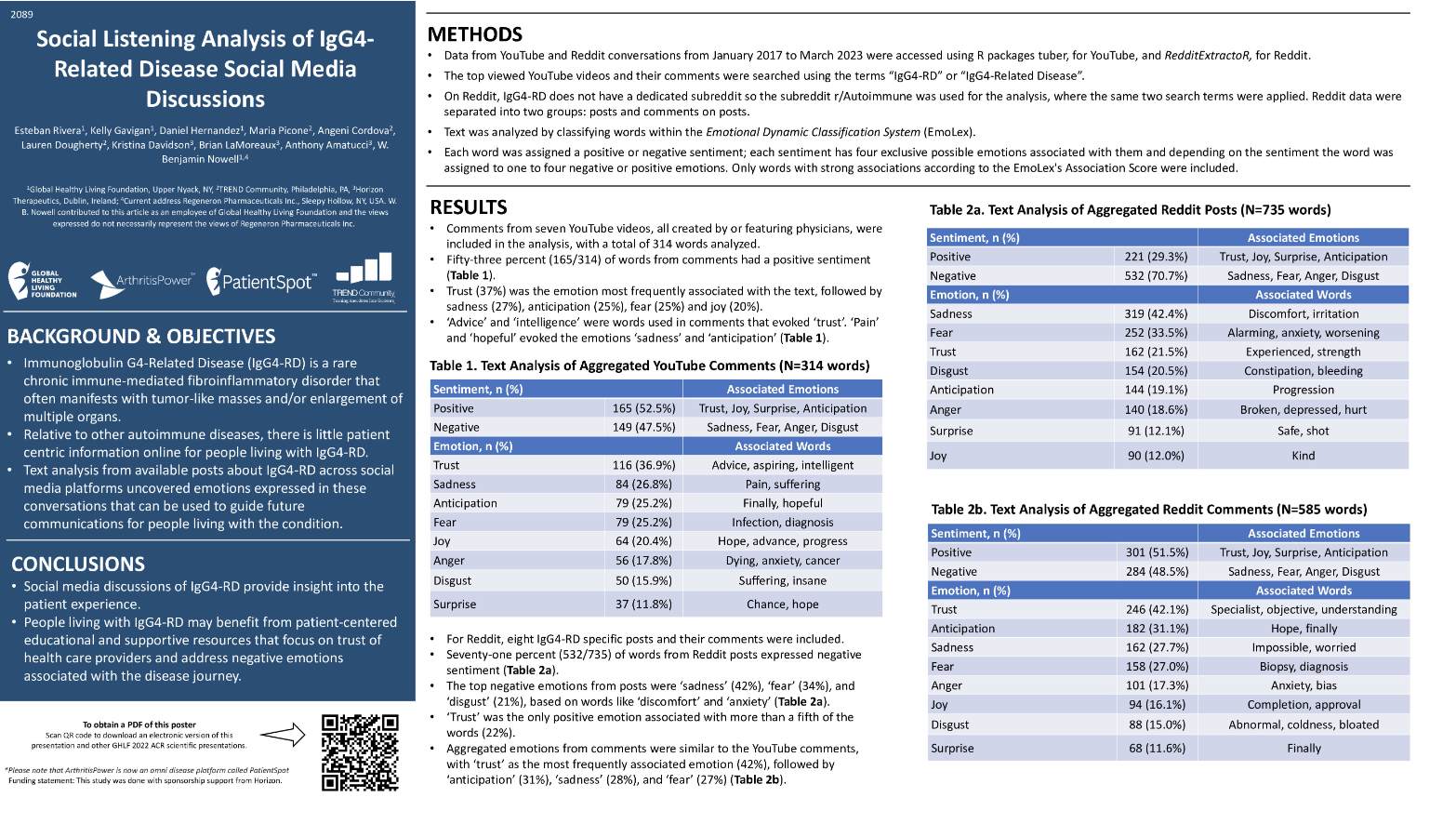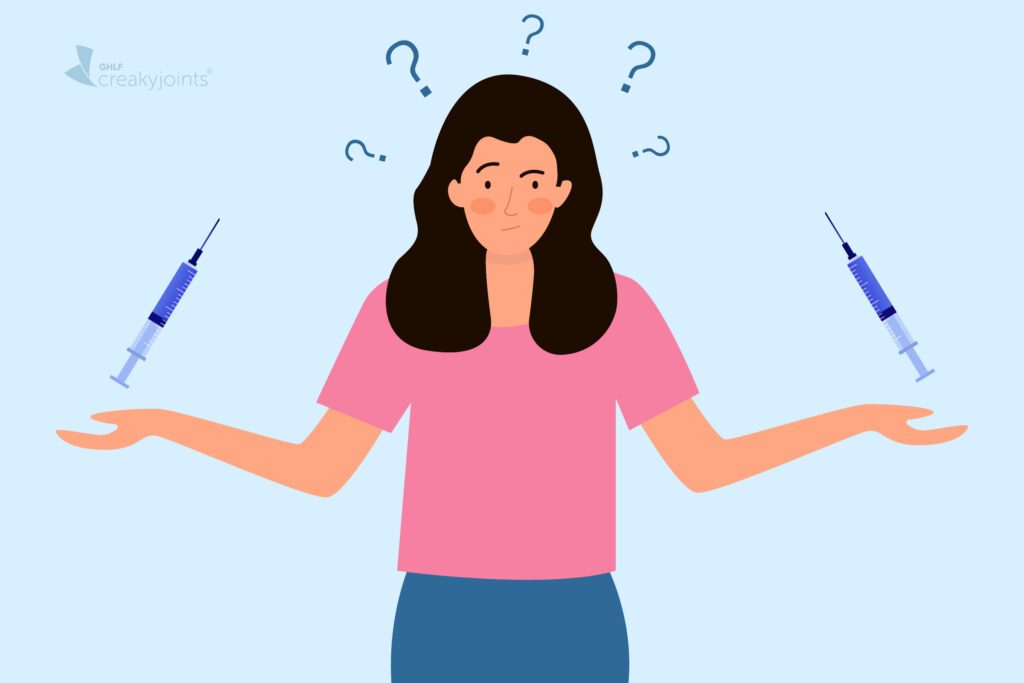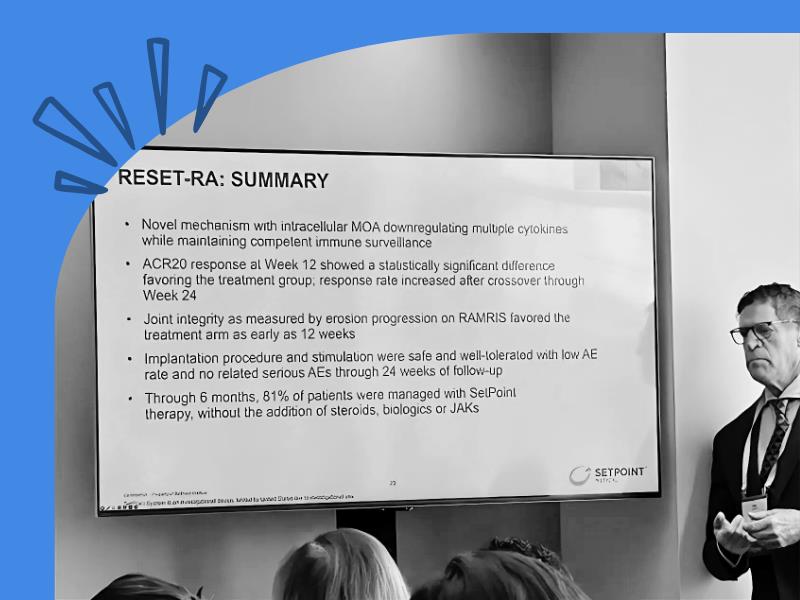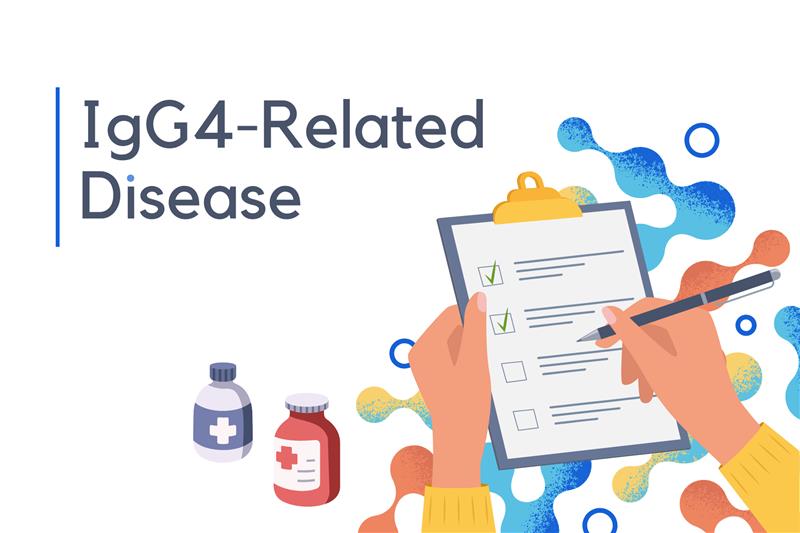
Your Guide to IgG4-Related Disease
To many, “IgG4” might seem like just a random sequence of letters and numbers. But for those living with the condition or their loved ones, it can greatly impact their overall health and quality of life.
Immunoglobulin G4-Related Disease (IgG4-RD), or IgG4-related systemic disease (RSD), is a rare, multi-organ autoimmune disorder that is still of unknown cause. “It was discovered only 20 years ago, though it’s clearly not a new disease,” says John Stone, MD, MPH, Director, Clinical Rheumatology, at Massachusetts General Hospital. “It can affect 10 or 12 organs, though not every patient has every organ involved.”
Each person’s journey with IgG4-RD is unique.
In contrast to most autoimmune diseases, males are more likely than females to develop IgG4-related disease. “Typically, males experience more severe disease with involvement of multiple organs, higher serum IgG4 levels, and greater internal damage,” says Dr. Stone. Some types of IgG4-RD are also more common in males. While the average age of diagnosis is around age 60, anyone can be affected “both children and individuals in their 90s…[and] it can affect people of every race and ethnicity,” he continues.
People with IgG4-RD often don’t show any noticeable signs or symptoms for extended periods — sometimes months or even years — and this silent progression can lead to organ damage.
“The disease progresses over the course of years, rather than months,” says Dr. Stone. “Typically, there are few symptoms, despite significant inflammation, and awareness of the disease is still not very efficient.”
In fact, many health care practitioners have not heard of it. Until recently, it was not assigned an ICD-10 code, which is a standardized alphanumeric code used in health care to classify and categorize diseases, conditions, and medical procedures. “ICD” stands for “International Classification of Diseases,” and “10” indicates the 10th edition of this coding system.
Because it impacts numerous organs, IgG4-RD can present in different ways, even mimicking the appearance of cancerous masses, and cause a wide variety of symptoms, including:
- Sneezing, runny nose, or sinus complications
- Eye discomfort, changes in vision, or protruding eyes
- Fatigue
- Weight loss
- Headaches
- Cranial nerve dysfunction
- Protrusion of one or both eyes
- Swellings on the face or below the chin
- Inflammation in the thyroid
- Large vessel vasculitis (blood vessel wall inflammation)
- Shortness of breath
- Obstruction of urine flow from the kidney
- Enlarged kidneys
- Abdominal discomfort
- Painless jaundice, manifesting as a yellowish hue to the skin or eyes
IgG4-RD can present in various ways, affecting different parts of the body. Some common symptoms include:
- Tumor-like masses in different regions
- Enlargement or swelling of organs
- Sneezing, runny nose, or sinus complications
- Eye discomfort, changes in vision, or protruding eyes
- Swelling in areas such as the face or limbs
- Constant feelings of fatigue or brain fog
- Sudden weight changes
- Difficulty in breathing
IgG4-RD has the ability to impact multiple parts of the body, sometimes even at once, and has been reported in virtually every organ system, including:
- Meninges
- Orbits
- Lacrimal glands
- Major salivary glands
- Thyroid gland
- Lungs
- Aorta
- Kidneys
- Pancreas
- Bile ducts
The diagnosis process for IgG4-RD is neither swift nor straightforward. There is no single diagnostic test for this disease. Many patients experience delays in getting an accurate diagnosis.
“Diagnosis is often made by triangulating clinical presentation, radiological studies, and pathology findings,” says Dr. Stone.
This may include:
- Biopsy
- Serum IgG4 level
- Serum complement levels (C3 and C4)
- Selective imaging
For some, getting to a diagnosis can take sever several months, while for others, it might take decades, countless consultations with multiple specialists, imaging, blood tests, and scans, procedures, and surgeries.
Rheumatologists are the most common diagnosing physicians, but patients may consult with a range of specialists depend on which organ(s) is affected:
- Emergency medical specialists
- Gastroenterologists
- Nephrologists
- Neurologists
- Ophthalmologists
- Pathologists
Beyond the physical manifestations of the disease, the journey to an accurate diagnosis is often filled with emotional and psychological challenges. The prolonged quest for answers can be distressing, with many facing misdiagnoses and unnecessary procedures.
“For years, patients have been told they have cancer, tuberculosis, or granulomatous mastitis with polyangiitis, leading to a significant waste of time and resources due to unnecessary testing,” says Dr. Stone. “Some patients even undergo a modified Whipple procedure, going overnight from normal glucose levels to being diabetic because of misdiagnosis.” Also known as a pancreaticoduodenectomy, a whipple procedure is a complex surgical procedure performed to treat certain diseases and conditions of the pancreas, bile duct, and the first part of the small intestine (duodenum).
Once diagnosed, treatment becomes the next crucial step. “IgG4-related disease is highly treatable, especially if it is diagnosed before significant organ damage occurs,” says Dr. Stone. “Patients can achieve a full recovery, but the challenge lies in getting an accurate diagnosis before severe organ damage takes place.”
The standard of care for IgG4-RD is glucocorticoids that will help reduce inflammation. Unfortunately, long-term steroid use isn’t without side effects like weight gain, osteoporosis, high blood pressure, and diabetes.
“In Asia, patients are often kept on steroids for several years or even indefinitely, while in North America, the approach is to taper off after three months,” says Dr. Stone. He notes that there is also investigational therapy that involves B-cell depletion with rituximab, although this is an off-label use.” Rituximab is frequently considered when corticosteroids are not a good choice, like for someone with uncontrolled diabetes. It can also be used to start or keep remission when patients can’t handle reducing corticosteroids, or if the disease comes back within a year after stopping corticosteroids.
Selected patients require urgent surgical intervention in addition to medical therapy.
According to Dr. Stone, there are currently several different clinical trials focused on treating IgG4-RD. Clinical trials play a vital role in advancing treatments, offering hope to patients with challenging conditions like IgG4 when standard treatments fall short.
If you’re considering participating in a clinical trial, here are some essential questions to ask:
- What is the main focus of the study?
- How long will the trial last?
- Will I know which treatment I receive, and who else will have this information?
- Has this treatment been tested before, and why do researchers believe it will be effective?
- How do the potential risks, side effects, and benefits of the new treatment compare to my current one?
- What are the requirements for my participation?
- Is hospitalization required?
- Will I receive compensation for my participation or be reimbursed for expenses?
- Can I continue receiving the treatment after the trial ends?
- Will I have access to the trial’s results once it’s completed?
To find a clinical trial suitable for IgG4, you can:
- Discuss potential trials with your health care provider.
- Search for trials on reputable websites like ClinicalTrials.gov.
- Ask for guidance from patient groups or patient advocacy groups.
Living with a rare condition like IgG4-RD can be challenging because many people may not fully understand what you’re going through. You might find it hard to talk to friends and family who may not grasp the extent of your struggles. However, withdrawing from the world can intensify your pain.
Connecting with a community of individuals who share your experiences of living with chronic illness can provide valuable support. These individuals understand the daily challenges you face and can offer empathy and encouragement, helping you build the inner strength to navigate your condition and lead a fuller life.
Interview with John Stone, MD, MPH, Director, Clinical Rheumatology, at Massachusetts General Hospital.
Khosroshahi A, et al. International consensus guidance statement on the management and treatment of IgG4-related disease. Arthritis Rheumatology. 2015. doi: https://doi.org/10.1002/art.39132.
Perugino CA, et al. IgG4-related disease: an update on pathophysiology and implications for clinical care. Nature Reviews Rheumatology. doi: https://doi.org/10.1038/s41584-020-0500-7.
Wallace ZS, et al. Clinical phenotypes of IgG4-related disease: an analysis of two international cross-sectional cohorts. Annals of the Rheumatic Diseases. doi: https://doi.org/10.1136/annrheumdis-2018-214603.
Wang, L, et al. “Sex Disparities in Clinical Characteristics and Prognosis of Immunoglobulin G4–Related Disease: A Prospective Study of 403 Patients. Rheumatology. 2019. doi: https://doi.org/10.1093/rheumatology/key397.
More Resources
Get patient perspectives on living with IgG4-RD.
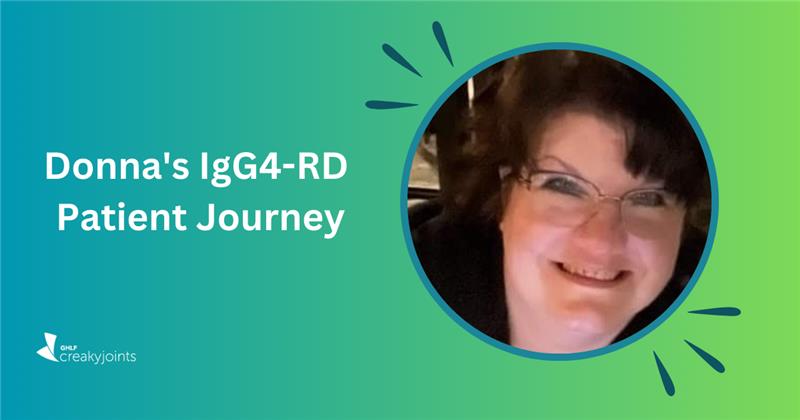
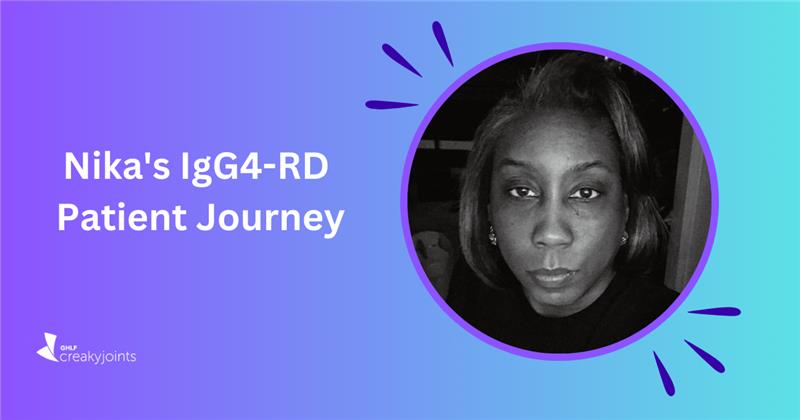
She remained asymptomatic for IgG4-RD until the silent disease brewing inside her led to the unexpected loss of a kidney.
After a 17-year diagnosis journey to IgG4-Related Disease, Nika is sharing her story and lessons to help others be proactive patients.
Social Listening Analysis
Analyzing Social Media Conversations Among Patients with IgG4-RD
Research on conversations involving IgG4-RD reveals the need for educational and supportive resources.
Health Advocates
The Road to an IgG4-RD Diagnosis:
How Nika Beamon Advocated
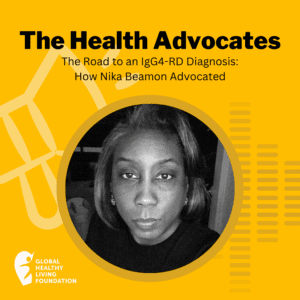
The Health Advocates are joined by Nika Beamon who lives with IgG4-related disease (IgG-RD), a group of fibroinflammatory conditions that can impact various tissues, often leading to tumor-like growth or organ dysfunction. Nika shares her 17-year journey to an IgG4-RD diagnosis, including how she advocated for herself. She offers valuable tips for fellow chronic illness patients, highlighting the unique considerations people with autoimmune diseases have in everyday life.
Subscribe for More IgG4-RD Resources
By subscribing, you agree to receive emails from CreakyJoints and its parent organization, Global Healthy Living Foundation. We will never sell your data. See our Privacy Policy.


